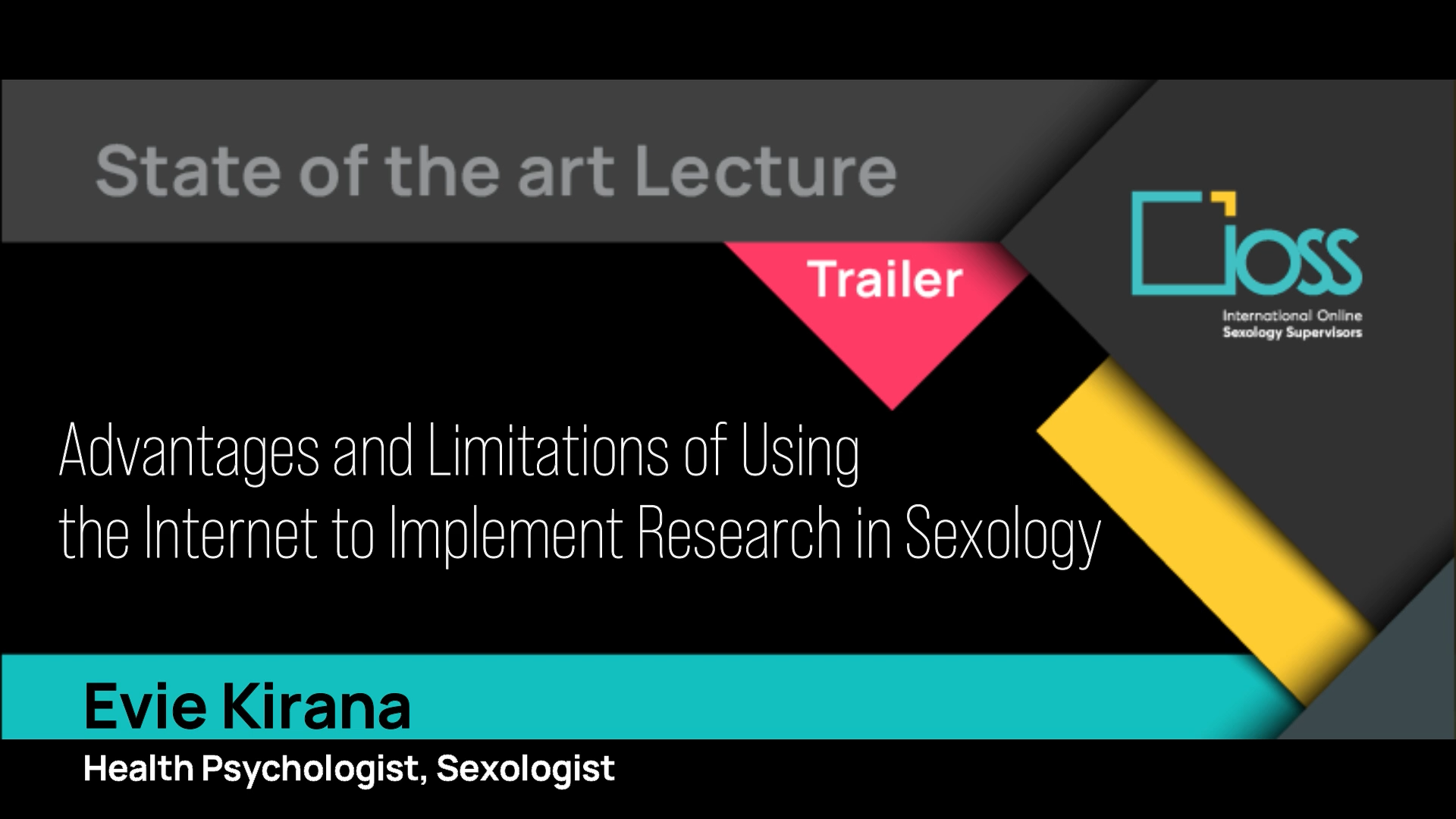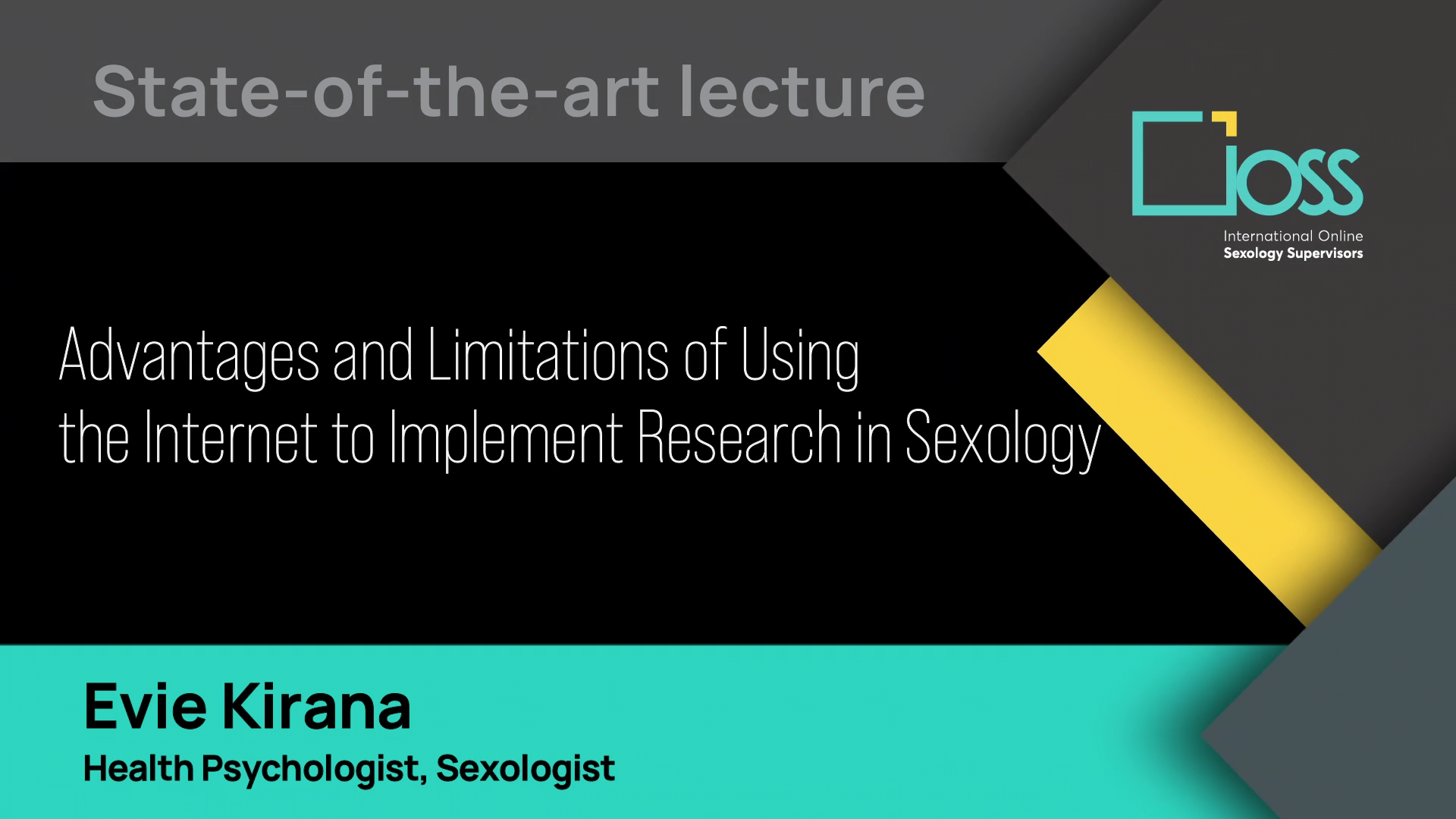Advantages and Limitations of Using the Internet to Implement Research in Sexology
1h
Evie Kirana
Health Psychologist & Sexologist
 Trailer
Trailer Get AccessFull Video
Get AccessFull VideoContent and Aim: At the first glance, most of us would assume that this lecture is only for those who are involved in research. But this is certainly not true!
For those who are involved in conduction of research, it is mandatory that they perform the research well to curtail wastage of time and money. They are also expected to publish it later in a peer-reviewed journal so that the research can be presented to the world without any ambiguity. On the other hand, those who are not involved in conducting research themselves, are the end users of the fruit of such tedious efforts and should at least be able to differentiate between good and bad science. Only good science needs to be adopted and followed. There are many examples of biased researches in literature. It is not possible to differentiate between biased research outcomes from unbiased ones without a proper understanding of each aspect of research. This lecture aims to present the advantages and also the disadvantages of using the internet for sexology research, with an emphasis on web surveys and web based qualitative studies. Threats to the reliability and validity of web based studies will be discussed.
Learning Objectives:
-
- Understand the key methodological advantages
- Understand the key threats to the reliability and validity of web surveys
- Be aware of methodological tips to maximise results of web surveys
- Learn the opportunities of web based qualitative studies and be mindful of some ethical considerations
- Get introduced to on big data
Produced in 2020

Evie Kirana
Health Psychologist & Sexologist
Lecturer and Supervisor
Dr. Paraskevi-Sofia (Evie) Kirana, Ph.D., MSc, ECPS, received her Bachelor’s Degree in Psychology from Panteion University (1998) and immediately continued with her postgraduate studies in Health Psychology (MSc) at the University of Bristol in the United Kingdom, and later completed her Ph.D. in psychology at the University of Athens.
She received additional training in the field of sexology by completing the Specialist Programme of the European Society for Sexual Medicine (ESSM) and a two-year postgraduate program in psychosexual dysfunction treatments at the Mental Health Research Institute (EPIPSY) of the University of Athens. In 2013 she was awarded the title of Honorary Fellow of the European Committee of Sexual Medicine (hon FECSM). Since 2008 her daily clinical work has focused solely on treating sexual dysfunctions of men and women, with the majority of cases being erectile dysfunction and ejaculatory disorders. Within the last 5 years, she has treated approximately 1500 men with psychogenic erectile dysfunction and 1000 men with premature ejaculation. Since 2010 she has lectured at the postgraduate program on psychosexual dysfunctions of Athens, as well as all educational activities of the ESSM (ESSM School of Sexual Medicine, ABC course, Preparatory Course). Her lectures and workshops are usually on psychogenic erectile dysfunction and ejaculatory disorders. For the last 8 years, she has been the head of the Centre for Sexual and Reproductive Health (KESAY). Her research work includes 19 international and 6 Greek publications. She is one of the editors of the EFS-ESSM Syllabus in Clinical Sexology and also the ESSM Manual of Sexual Medicine (2nd edition). She has served as an associate editor of the Journal of Sexual Medicine and as a member of the editorial board of the Journal of Sexual Medicine. She was the chair of the ESSM/EFS Exam Committee for psycho-sexologists (2012-2022), a member of the 4th International Consultation for Sexual Medicine, and a member of the EFS executive committee (2018-2022) and co-chair of the EFS scientific committee (2017-2022).
She is currently a member of the ESSM Educational Committee and chair of the ESSM Sexology scientific sub-committee.
Languages
English, Greek


